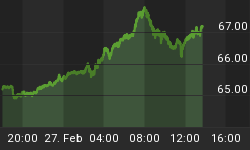Rising mortgage rates and higher prices are squeezing buyers out of the U.S. housing market as new data indicates a slowdown that could be raising a major red flag for the economy.
Key data from the National Association of Realtors shows that total home sales have fallen 2.2 percent over the past year, with homes in June selling at a seasonally adjusted annual pace of 5.38 million.
Buyers are starting to sit this out as the feel the big squeeze, for both new and existing homes.
Sales of new U.S. homes fell 5.3 percent in June, while median sales prices in this category also came down slightly. In May, according to the U.S. Department of Commerce, new-build homes sold at an annual rate of 666,000, while June saw a rate of only 631,000. While newly built home sales are up 6.9 percent this year, experts suggest the rate is not sustainable due to rising lumber costs for builders and higher mortgage rates for buyers who aren’t seeing proportionate wage increases.
Sales of existing homes fell 0.6 percent in June—the third consecutive monthly decline.
While the number of listings has gone up, it’s only been slight: 0.5 percent year-on-year, but median sales prices for existing homes went up 5.2 percent in June, from a year ago, landing at $275,900. And Americans can’t afford it—especially in the West where the jump in sales prices has been a harrowing 10.2 percent, with the median price at $417,400. Related: Soda, Beer Prices Up As Tariffs Start To Hit Home
In California, they’re calling it “buyer fatigue”. While the number of homes on the market in the state was fairly steady, if still low, buyers here have seen prices increase continuously for six years.
Some think it’s the start of a correction.
Economist Jordan Levine with the California Association of Realtors told the Sacramento Bee that buyers are either being priced out or waiting for a correction and biding their time. “It suggests (some) buyers ... think there is going to be a correction, or they are unable to enter the market because of higher prices and higher interest rates,” Levine said.
Others think it’s an indicator of worse things to come.
“The housing market has been losing momentum for several months,” Yahoo Finance quoted Stifel Chief Economist Lindsey Piegza as saying, adding that “Housing is a solid gauge of the overall health of the economy; weakness in housing raises a large red flag regarding the sustainability of domestic growth heading into the second half of the year.”
According to Nobel Prize-winning economist Robert Shiller, as quoted by Bloomberg, “this could be the very beginning of a turning point”, though he stopped short of calling a bubble.
The problem is that housing can either pull the economy down or it can drive the economy forward. Right now, it’s doing neither and investor confidence is sitting on the fence as to whether we’re about to enter a bit of a correction or whether this is going to be the one thing that throws a wrench in otherwise good economic indicators.
By David Craggen for Safehaven.com
More Top Reads From Safehaven.com
















